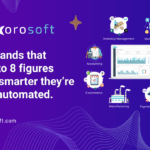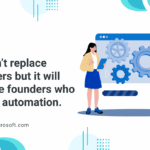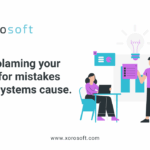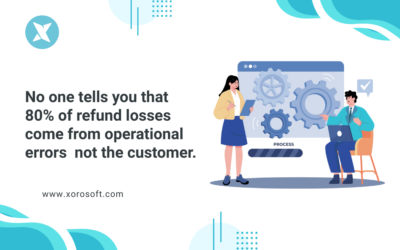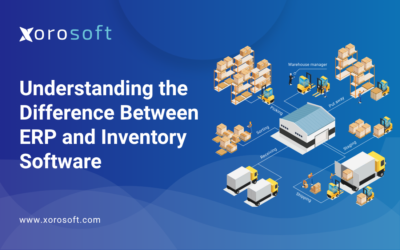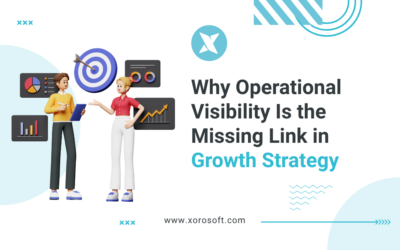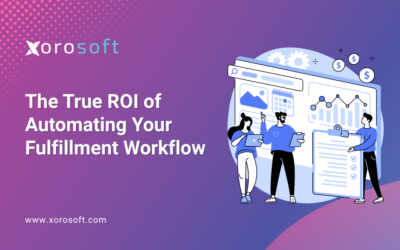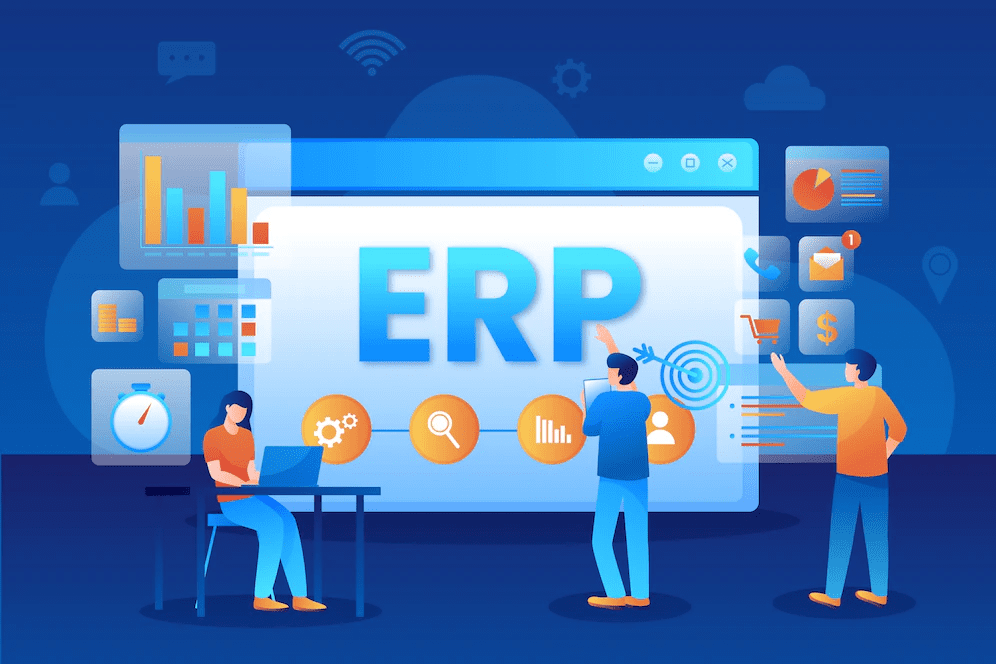
Introduction to ERP Systems
In today’s rapidly evolving business landscape, Enterprise Resource Planning (ERP) systems have become a vital tool for organizations to effectively manage their operations. ERP systems integrate various aspects of a business, such as finance, human resources, and supply chain management, into a single platform, providing a centralized solution for streamlining processes and improving overall efficiency.
The Importance of Mobile Access in ERP Systems
As businesses embrace digital transformation, the need for mobile access to ERP systems has become increasingly crucial. Mobile access allows employees to access vital information and perform tasks on the go, enabling them to make quick decisions and respond promptly to customer needs. Whether it’s approving purchase orders, checking inventory levels, or reviewing financial reports, mobile access empowers employees to stay connected and productive, regardless of their location.
Mobile access in ERP systems also promotes collaboration and enhances communication within an organization. With the ability to access real-time data and interact with colleagues remotely, employees can work together seamlessly, leading to improved decision-making and faster problem resolution. Additionally, mobile access eliminates the need for employees to be tied to their desks, providing them with the freedom and flexibility to work from anywhere, resulting in increased productivity and job satisfaction.
Benefits of Mobile Access in ERP Systems
The integration of mobile access into ERP systems offers a multitude of benefits for businesses across various industries. Firstly, mobile access improves efficiency by enabling employees to complete tasks in real-time, eliminating delays and reducing errors. With the ability to access and update information instantly, employees can make informed decisions promptly, leading to improved operational efficiency and customer satisfaction.
Secondly, mobile access enhances data accuracy and integrity. By allowing employees to input data directly into the ERP system using their mobile devices, the likelihood of errors due to manual data entry is significantly reduced. This not only saves time but also ensures that the information within the ERP system is up-to-date and reliable, enabling businesses to make accurate forecasts and strategic decisions.
Additionally, mobile access increases accessibility to critical information. Whether it’s sales data, customer information, or inventory levels, employees can access the information they need at any time, thereby reducing dependency on physical documents or desktop computers. This instant access to information enables employees to respond quickly to customer inquiries, resolve issues promptly, and make data-driven decisions, ultimately leading to improved customer service and satisfaction.
Current Trends in Mobile Access for ERP Systems
As technology continues to advance, new trends in mobile access for ERP systems are rapidly emerging. One prominent trend is the integration of artificial intelligence (AI) and machine learning (ML) into mobile ERP applications. AI and ML algorithms can analyze vast amounts of data, identify patterns, and provide valuable insights to businesses, helping them optimize processes, enhance decision-making, and predict future trends.
Another trend is the use of voice recognition technology in mobile ERP applications. Voice commands allow employees to interact with the ERP system hands-free, enabling them to perform tasks efficiently while on the move. This not only improves productivity but also enhances user experience by providing a more intuitive and convenient interface.
Moreover, the rise of the Internet of Things (IoT) has opened up new possibilities for mobile access in ERP systems. With IoT-enabled devices, such as sensors and smart devices, businesses can gather real-time data on various aspects of their operations, such as inventory levels, equipment performance, and energy consumption. This data can then be seamlessly integrated into the ERP system, providing businesses with a comprehensive view of their operations and enabling them to make data-driven decisions.
Xorosoft ERP: A Comprehensive Solution for Mobile Access
When it comes to ERP solutions, Xorosoft ERP stands out as a comprehensive and innovative platform that offers seamless mobile access. With its user-friendly interface and robust features, Xorosoft ERP empowers businesses to effectively manage their operations and stay ahead of the competition.
Key Features of Xorosoft ERP’s Mobile Access
Xorosoft ERP’s mobile access offers a range of key features that enhance productivity and enable businesses to make informed decisions on the go. Firstly, the mobile app provides real-time access to critical information, such as sales data, inventory levels, and customer records. This allows employees to stay updated and respond promptly to customer inquiries, ensuring a seamless customer experience.
Secondly, Xorosoft ERP’s mobile access enables employees to perform various tasks remotely, such as generating and approving purchase orders, creating invoices, and managing inventory. This flexibility and convenience empower employees to be productive even when they are away from their desks, resulting in improved operational efficiency.
Furthermore, Xorosoft ERP’s mobile access incorporates advanced security measures, ensuring that sensitive business data remains protected. With features such as biometric authentication and encrypted communication, businesses can have peace of mind knowing that their data is secure, even when accessed through mobile devices.
Enhancing Inventory Management with Mobile Access in ERP Systems
Inventory management is a critical aspect of any business, and mobile access in ERP systems can greatly enhance this process. With mobile access, employees can easily track inventory levels, receive notifications for low stock, and place orders directly from their mobile devices. This real-time visibility into inventory enables businesses to optimize their stock levels, avoid stockouts, and reduce carrying costs.
Moreover, mobile access allows employees to perform physical inventory counts using their mobile devices. By scanning barcodes or using RFID technology, employees can quickly and accurately update inventory records, eliminating the need for manual data entry and reducing the chances of errors.
Additionally, mobile access enables employees to access historical data and analytics related to inventory management. This data can be used to identify trends, forecast demand, and make informed decisions regarding purchasing and stock allocation. With mobile access, businesses can have a comprehensive view of their inventory at all times, leading to improved inventory control and cost savings.
Streamlining Accounting Processes with Mobile Access in ERP Systems
Accounting is another critical function within organizations, and mobile access in ERP systems can streamline various accounting processes. With mobile access, employees can easily access financial reports, track expenses, and perform financial analysis anywhere, anytime. This real-time access to financial data enables businesses to make informed decisions promptly and accurately.
Furthermore, mobile access allows employees to submit expense claims and invoices directly from their mobile devices. This eliminates the need for manual paperwork and reduces the chances of errors or delays in the reimbursement process. Additionally, mobile access enables managers to review and approve expense claims remotely, providing a streamlined and efficient workflow.
Mobile access in ERP systems also facilitates seamless integration with financial institutions and banking systems. Employees can initiate payments, transfer funds, and reconcile bank statements directly from their mobile devices, eliminating the need for manual data entry and reducing the chances of errors. This integration enhances accuracy, saves time, and improves overall financial management.
Future Advancements and Predictions for Mobile Access in ERP Systems
As technology continues to evolve, the future of mobile access in ERP systems holds exciting possibilities. One potential advancement is the widespread adoption of augmented reality (AR) and virtual reality (VR) in mobile ERP applications. AR and VR can provide immersive experiences, enabling employees to visualize data, interact with virtual objects, and analyze information in a more intuitive and engaging manner.
Another prediction is the increased integration of mobile ERP applications with Internet of Things (IoT) devices. With IoT-enabled devices becoming more prevalent, businesses can leverage mobile access to monitor and control various aspects of their operations, such as equipment performance, energy consumption, and supply chain logistics. This integration will enable businesses to achieve higher levels of automation, efficiency, and sustainability.
Furthermore, the future of mobile access in ERP systems may involve the use of blockchain technology to enhance security and transparency. Blockchain can provide a decentralized and immutable ledger, ensuring the integrity and authenticity of data accessed through mobile devices. This technology can revolutionize data privacy and security, instilling trust and confidence in mobile ERP applications.
Conclusion
Mobile access has become a game-changer in the ERP landscape, unlocking immense potential for businesses across industries. With its ability to provide real-time information, enhance collaboration, and streamline processes, mobile access in ERP systems is essential for organizations aiming to stay competitive in today’s fast-paced business environment.
Xorosoft ERP stands at the forefront of this mobile access revolution, offering a comprehensive solution that empowers businesses to manage their operations effectively and make informed decisions on the go. By embracing mobile access in ERP systems, businesses can achieve greater efficiency, productivity, and customer satisfaction.
To experience the power of Xorosoft ERP’s mobile access firsthand, book a demo with us today!
